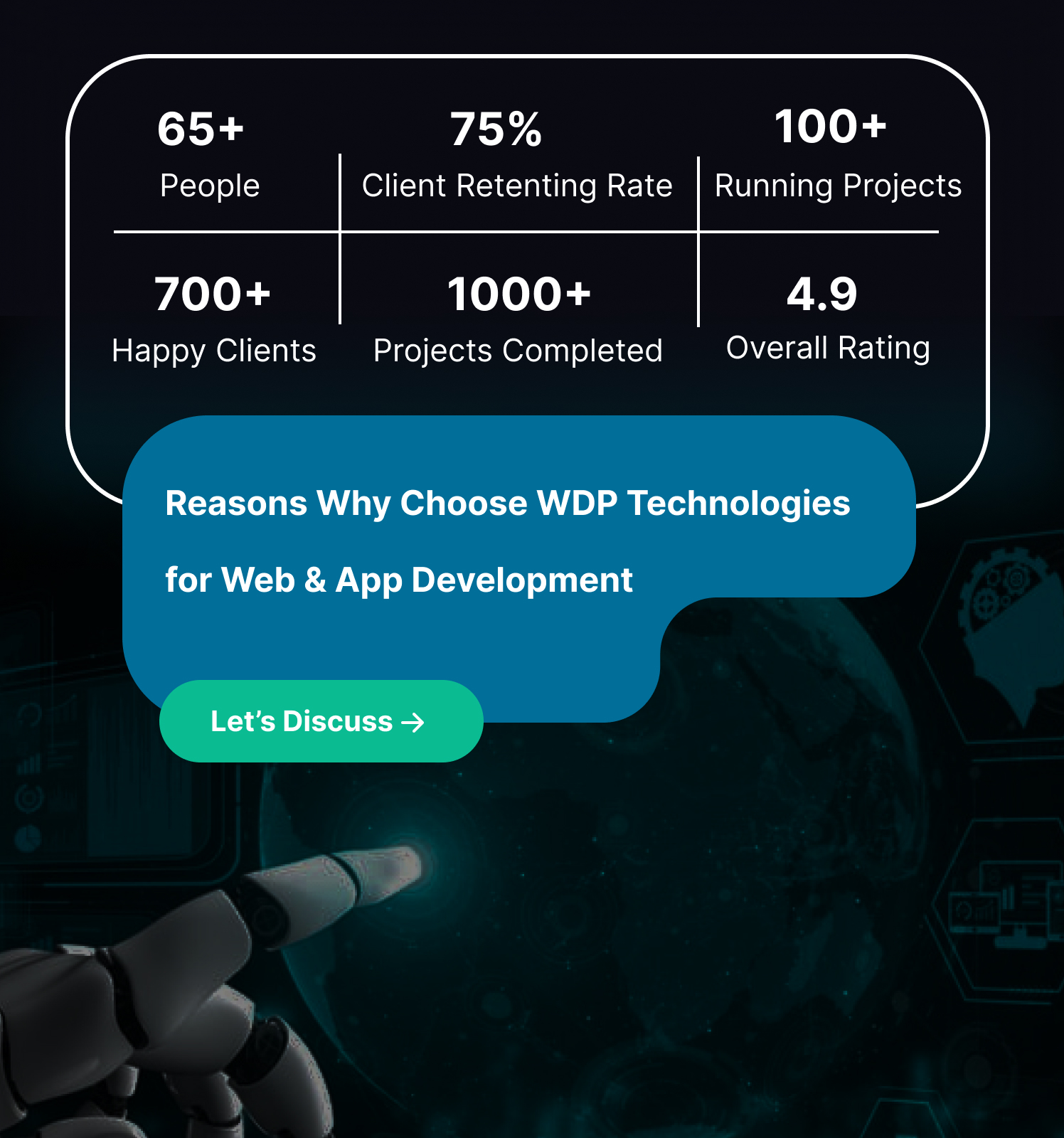In today’s rapidly evolving tech world, companies face increasing pressure to remain competitive while simultaneously controlling costs and delivering high-quality products or services. One effective strategy that has gained immense popularity is outsourcing. Outsourcing is the practice of hiring a third-party company to perform tasks that are typically done by in-house employees.
In this blog, we will explore 15 compelling reasons Why do companies choose to outsource work? and how it benefits their overall business operations.
What is Outsourcing
Outsourcing is a business practice where a company hires another individual or organization to perform tasks, handle operations, or provide services that could be done internally. These tasks can range from manufacturing and production to customer support, IT services, accounting, and much more.
Outsourcing has become a standard practice for many businesses worldwide, offering numerous benefits in terms of cost-effectiveness, efficiency, and access to specialized skills that’s why do companies choose to outsource work. However, it also comes with its own set of challenges, such as maintaining quality control, ensuring data security, and managing vendor relationships effectively.
Why Do Companies Choose To Outsource Work?
Outsourcing can be a valuable method for companies that are looking to improve their bottom line, increase efficiency, or improve focus.There are many reasons why do companies choose to outsource work. Some of the most common reasons include:
1. Cost Reduction:
Outsourcing can significantly reduce costs for companies. It eliminates the need for recruiting, training, and maintaining in-house teams, which can be expensive. Outsourcing providers often operate in countries with lower labor costs, allowing businesses to access quality services at a lower price.
2. Access to Expertise:
Outsourcing provides access to specialized expertise that may not be available internally. External service providers often have a dedicated focus on a particular area, enabling them to offer deep knowledge and skill sets that can be crucial for the success of specific tasks or projects.
3. Focus on Core Competencies:
Outsourcing non-core activities frees up internal resources, allowing companies to concentrate on their core competencies. By delegating peripheral tasks to external providers, organizations can enhance their efficiency and allocate resources to areas that drive innovation, growth, and competitive advantage.
4. Scalability and Flexibility:
Outsourcing offers scalability and flexibility to companies. Businesses can easily scale up or down their operations based on demand fluctuations without worrying about the logistics of hiring or downsizing an internal workforce.
5. Risk Mitigation:
Outsourcing can help mitigate risks associated with certain business functions. Service providers often have extensive experience and knowledge in their respective domains, enabling them to handle potential risks more effectively. They may also have robust backup systems and disaster recovery plans in place.
6. Improved Efficiency and Productivity:
External providers often have well-defined processes, streamlined workflows, and access to cutting-edge technologies. By leveraging these advantages, companies can enhance their efficiency, productivity, and overall performance.
7. Time Savings:
Outsourcing time-consuming tasks allows companies to focus on core operations and strategic initiatives. It reduces administrative burdens, enables faster project completion, and ensures timely delivery of products or services.
8. Access to Advanced Technology:
Keeping up with rapidly evolving technology can be challenging for companies. By outsourcing, organizations can leverage the expertise and investments of service providers who have access to the latest tools, software, and infrastructure. This eliminates the need for significant upfront investments and ongoing maintenance costs.
9. Enhanced Customer Satisfaction:
Outsourcing certain customer-facing activities, such as customer support or call centers, to specialized providers can lead to improved customer satisfaction. External providers often have well-trained staff, efficient processes, and the necessary resources to deliver exceptional customer experiences.
10. Global Market Expansion:
Outsourcing can facilitate global market expansion for companies. Service providers with international operations or networks can help businesses navigate cultural and language barriers, enabling them to reach new markets and customers more effectively.
11. Faster Time-to-Market:
In fast-paced industries, speed to market is crucial. Outsourcing allows companies to accelerate product development cycles or service delivery by leveraging external resources. This can provide a competitive edge and increase market share.
12. 24/7 Operations and Support:
Outsourcing can provide round-the-clock operations and support. Service providers in different time zones can ensure that critical tasks or customer needs are addressed even during off-hours, enabling businesses to provide uninterrupted services or support to their clients.
13. Access to Best Practices:
External providers often have exposure to a wide range of industries and clients, which exposes them to best practices. By partnering with such providers, companies can gain access to proven methodologies, industry benchmarks, and innovative approaches, driving continuous improvement within their own operations.
14. Geographical Expansion:
Companies looking to expand their geographical footprint can leverage outsourcing. Service providers can assist with setting up operations in new locations, navigating local regulations, and establishing a local presence more efficiently.
15. Competitive Advantage:
Outsourcing can provide a competitive advantage by allowing companies to focus on their unique value propositions while relying on external expertise for non-core functions. This agility and strategic focus can position businesses as industry leaders and differentiate them from competitors.
Factors to Consider Before Choose to Outsource Work
When considering outsourcing as a strategic option for your business, it’s important to take certain factors into consideration. Here are 10 key things to think about before companies choose to outsource work:
a. Define Your Objectives:
Clearly outline your goals and objectives for outsourcing. Identify what you aim to achieve and how outsourcing can help you meet those objectives.
b. Cost Analysis:
Conduct a thorough cost analysis to determine the financial feasibility of outsourcing. Consider not only the direct costs but also potential savings in terms of overhead expenses and increased efficiency.
c. Expertise and Experience:
Evaluate the expertise and experience of potential outsourcing partners. Look for providers who have a proven track record in the specific tasks or services you wish to outsource.
d. Quality Assurance:
Ensure that the outsourcing partner has robust quality assurance processes in place. Define and establish quality standards, service level agreements (SLAs), and key performance indicators (KPIs) to monitor and evaluate the quality of work delivered.
e. Communication and Collaboration:
Establish effective communication channels and protocols with the outsourcing partner. Ensure that there is open and transparent communication to avoid misunderstandings and promote collaboration.
f. Data Security:
Assess the outsourcing partner’s data security measures to protect your sensitive information. Ensure that they have robust security protocols and are compliant with relevant data protection regulations.
g. Scalability and Flexibility:
Consider the scalability and flexibility of the outsourcing arrangement. Ensure that the partner can handle fluctuations in demand and adapt to your changing business needs.
h. Cultural Compatibility:
Assess the cultural compatibility between your organization and the outsourcing partner. Understand and bridge any cultural differences to foster effective communication and collaboration.
i. Contractual Agreements:
Develop comprehensive contractual agreements that clearly outline the scope of work, deliverables, timelines, pricing structures, intellectual property rights, confidentiality, and dispute resolution mechanisms.
j. Transition & Change Management:
Plan for a smooth transition when outsourcing. Develop a change management strategy to address any potential disruptions and ensure proper knowledge transfer from your organization to the outsourcing partner.
Pros and Cons for Companies Choose to Outsource Work
Outsourcing can offer several advantages and disadvantages for businesses. Let’s explore the pros and cons of outsourcing:
Pros of Outsourcing:
a. Cost Savings:
Outsourcing can lead to significant cost savings as it eliminates the need for investing in infrastructure, hiring and training employees, and managing associated overhead expenses.
b. Access to Expertise:
Outsourcing allows businesses to access specialized skills and expertise that may not be available internally. External service providers often have a dedicated focus on specific tasks or industries, providing a high level of proficiency.
c. Increased Efficiency:
Outsourcing certain functions can enhance operational efficiency by leveraging the expertise and streamlined processes of external providers. This enables businesses to focus on core competencies and allocate resources more effectively.
d. Scalability and Flexibility:
Outsourcing provides businesses with the flexibility to scale operations up or down based on changing needs or market demand, without the complexities of hiring or laying off employees.
e. Focus on Core Competencies:
By outsourcing non-core activities, businesses can concentrate their resources and efforts on core competencies, strategic initiatives, and innovation, leading to improved competitiveness.
f. Time Savings:
Outsourcing allows businesses to save time by delegating tasks to external providers who specialize in those areas. This enables faster project completion, increased productivity, and quicker time-to-market.
Cons of Outsourcing:
a. Loss of Control:
Outsourcing involves delegating certain tasks or processes to external providers, which may result in a loss of direct control over those activities. Businesses need to effectively manage and communicate expectations to ensure desired outcomes.
b. Quality Concerns:
Depending on the outsourcing partner’s capabilities, there may be potential risks associated with quality control. It’s essential to establish clear quality standards, monitoring mechanisms, and performance metrics to maintain desired levels of quality.
c. Communication Challenges:
Outsourcing may introduce communication challenges due to geographical and cultural differences. Effective communication and collaboration between the business and the outsourcing partner are crucial for successful outcomes.
d. Security and Data Privacy Risks:
Sharing sensitive information with external providers can pose security and data privacy risks. It’s essential to establish robust data protection measures, confidentiality agreements, and ensure compliance with relevant regulations.
f. Dependency on External Providers:
Relying heavily on external providers for critical functions can create a dependency that may hinder business agility. It’s important to carefully manage and diversify outsourcing arrangements to mitigate potential risks.
g. Potential for Job Losses:
Outsourcing can lead to job losses within the organization, particularly for functions being outsourced. Businesses must handle such transitions sensitively and consider alternative employment opportunities for affected employees.
Conclusion
In an increasingly competitive and fast-growing business environment, outsourcing has emerged as a strategic solution for companies looking to streamline operations, increase efficiency, and focus on core competencies. The decision for companies choose to outsource work offers numerous benefits, including cost savings, access to specialized skills, scalability, and flexibility. By partnering with external vendors, organizations can tap into a global talent pool, leverage advanced technologies, and achieve round-the-clock operations. Furthermore, outsourcing allows businesses to mitigate risks, enhance service quality, and foster innovation through collaborative partnerships. Ultimately, by embracing outsourcing as a strategic approach, companies can optimize resources, drive growth, and maintain a competitive edge in today’s dynamic marketplace. However, it is essential for organizations to carefully evaluate their outsourcing needs, select reliable partners, and establish effective communication channels to ensure successful collaboration and maximize the benefits of outsourcing.














